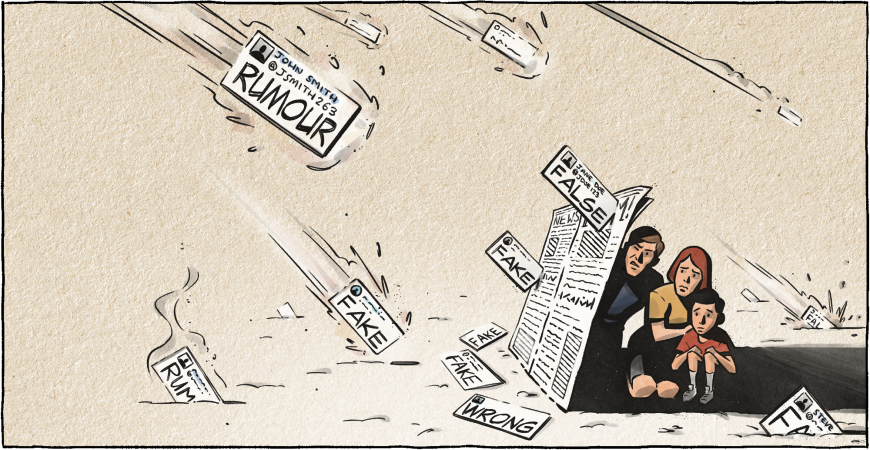Accessing and sharing accurate content has never been more important in Western Australia as we navigate our second lockdown, an upcoming vaccine rollout and the state election in March. However, the ability to spread rumours on social media as quickly as facts means we all need to be careful about what we read and share online.
Digital platforms like Facebook and Twitter have increasingly become the primary tool for government to get its message out to the public without relying on traditional media channels. As we saw this week, this can be extremely effective in times of crisis when important information must be communicated quickly to an entire state.
Regardless of where you were on Sunday, whether you were out and about or in front of a television you would have known almost immediately through social media that most of WA’s population was about to go into lockdown following the first case of community spread of COVID-19 in almost 10 months. Through social media we were able to find out if we had visited the same places as the infected hotel quarantine guard and exactly where we could be tested if there had been any chance of contact.
The flipside is that this week, social media also allowed frightening and baseless rumours to run rife through the community. There were stories that although no new cases had been recorded by the time Premier Mark McGowan gave his press conference on Monday, up to 21 new cases were about to be declared.
Those with the correct information were quick to act on the rumours. Mr McGowan took to social media on Monday night to dispel them and remind people to only share news and information from official or trusted sources. The West Australian’s editor, Anthony De Ceglie, used a front-page editorial to help set the record straight and to remind people that if they did not read it in a proper news publication, then the information was probably inaccurate.
Unfortunately, this week’s rumours about new coronavirus cases are not isolated examples of inaccurate information being shared on social media in Western Australia. Spend long enough online and you will find countless examples of misinformation, whether deliberate or unintentional, about the coronavirus and more. It can be easy to be sucked in by some of this misinformation, particularly when you see that it’s been shared by a contact of yours. When you share it, you’re contributing to its spread, whether you mean to or not.
The best way to avoid spreading the problem is to watch the daily briefings by the Premier, Health Minister, and Chief Health Officer, which are hosted on various platforms. If there is anything you missed or you need more information visit official government websites such as www.healthywa.wa.gov.au. Additionally, get your news from reputable organisations like The West Australian, WAToday, the ABC, and the major television and radio stations. Unlike social media platforms, traditional media organisations such as these are subject to regulations and codes of conduct, which makes them a more reliable source. Many of them may now be behind a paywall, but don’t let that put you off. A subscription is a small price to pay to be confident that your information is correct before you hit the share button.
 ReGen Strategic
ReGen Strategic